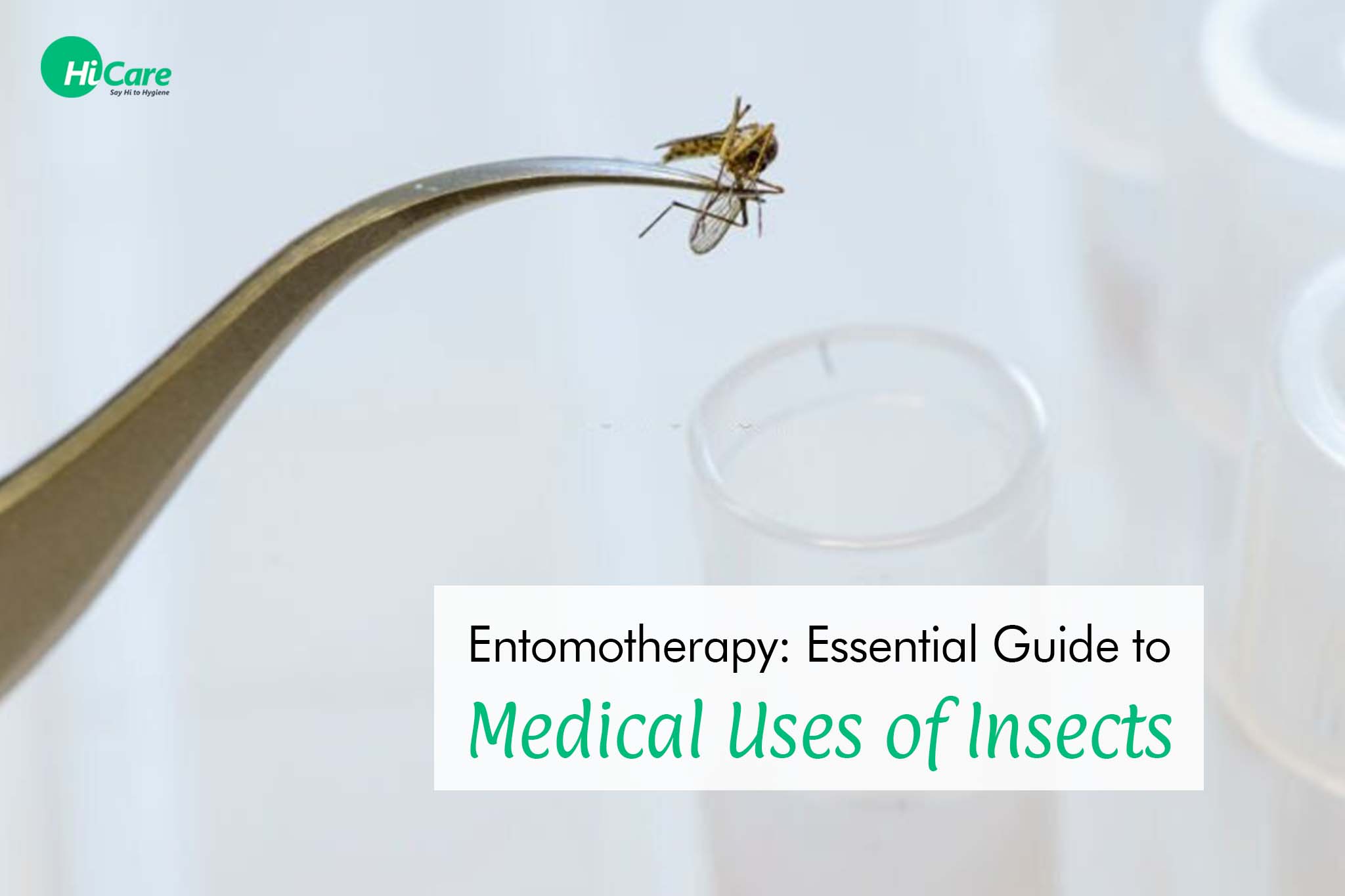Medicine, both traditional and modern, used insects sometimes with little evidence of their effectiveness. Let’s look at the medicinal uses of insects or Entomotherapy.
Top 7 Medicinal Uses of Insects
- Traditional and Alternative Uses of Insects in Medicine (Entomotherapy)
- Modern Scientific Uses of Insects in Medicine
- Maggot Therapy: Used in Military Medicine, Very Effectively!
- Apitherapy: Widely Used for Anti-Microbial Factors
- Blister Beetle and Spanish Fly: Cantharidin Accepted by FDA
- Blood-Feeding Insects: To Prevent Clot Formation
- Psychoactive Scorpions: Pain for A Gain of a Drug-Like High!
1. Traditional and Alternative Uses of Insects in Medicine (Entomotherapy)
The Doctrine of Signatures defined the medicinal uses of insects and other arthropods. They also stated that an organism bearing parts that resemble human body parts, animals, or other objects, was thought to have relevance to similar parts, animals or objects. The femurs of grasshoppers resemble the human liver. Due to it, the indigenous peoples of Mexico used it to treat liver ailments. This doctrine is common throughout traditional and alternative medicine. But it is more important in Traditional Chinese Medicine and Ayurveda.
2. Modern Scientific Uses of Insects in Medicine
People used insects widely throughout history for medical treatment in nearly every continent. Yet they conducted little medical entomological, since the revolutionary advent of antibiotics. Heavy reliance on antibiotics, coupled with discomfort with insects in Western culture limited the field of insect pharmacology. Until the rise of antibiotic-resistant infections sparked pharmaceutical research to explore new resources. Furthermore, Arthropods represents a rich and largely unexplored source of new medicinal compounds.
3. Maggot Therapy: Used in Military Medicine, Very Effectively!
Maggot therapy is the intentional introduction of life, disinfected blowfly larvae (maggots) into soft tissue wounds. It selectively cleans out the necrotic tissue. Hence it helps to prevent infection; it also speeds healing of chronically infected wounds and ulcers. Military surgeons, since classical antiquity, noticed that wounds which had been left untreated for several days, and which had become infested with maggots, healed better than wounds not so infested! Maggots secrete several chemicals that kill microbes, including allantoin, urea, phenylacetic acid, phenylacetaldehyde, calcium carbonate, proteolytic enzymes, and many others. Maya and indigenous Australians used maggots for wound healing. More recently, they were used in Renaissance Europe, in the Napoleonic Wars, the American Civil War, and in the First and Second World Wars. Hence military medicine continues to use it.
4. Apitherapy: Widely Used for Anti-Microbial Factors
Apitherapy is the medical use of honeybee products such as honey, pollen, bee bread, propolis, royal jelly and bee venom. One of the major peptides in bee venom, called Melittin, has the potential to treat inflammation in sufferers of Rheumatoid arthritis and Multiple Sclerosis. Melittin blocks the expression of inflammatory genes, thus reducing swelling and pain. A direct insect sting or intramuscular injections administers it. Bee products demonstrate a wide array of antimicrobial factors. Especially Laboratory studies show it kills antibiotic-resistant bacteria, pancreatic cancer cells, and many other infectious microbes.
5. Blister Beetle and Spanish Fly: Cantharidin Accepted by FDA
FDA accepted cantharidin, the blister-causing oil found in several families of beetles in 2004 as a treatment for warts and other skin problems. It also has a historical use by the Greeks and Romans and is used as an aphrodisiac in some societies. Recent studies in cell culture and animal models have demonstrated powerful tumour-fighting properties of Cantharidin.
6. Blood-Feeding Insects: To Prevent Clot Formation
Many blood-feeding insects like ticks, horseflies, and mosquitoes inject multiple bioactive compounds into their prey. Practitioners of Eastern Medicine have used these insects for hundreds of years to prevent blood clot formation or thrombosis. However, modern medical research has only recently begun to investigate the drug development potential of blood-feeding insect saliva. These compounds in the saliva of blood-feeding insects are capable of increasing the ease of blood-feeding by preventing coagulation of platelets around the wound and provide protection against the host’s immune response. Most of all, over 1280 different protein families have been associated with the saliva of blood-feeding organisms currently. This diverse range of compounds may include:
- Inhibitors of platelet aggregation, ADP, arachidonic acid, thrombin, and PAF.
- Anticoagulants
- Vasodilators
- Vasoconstrictors
- Antihistamines
- Sodium channel blockers
- Complement inhibitors
- Pore formers
- Inhibitors of angiogenesis
- Anaesthetics
- AMPs and microbial pattern recognition molecules.
- Parasite enhancers/activators
7. Psychoactive Scorpions: Pain for A Gain of a Drug-Like High!
Recent news reports claim that use of scorpions for psychoactive purposes is gaining in popularity in Asia. Heroin addicts in Afghanistan smoke-dried scorpions or use scorpion stings to get high when heroin is not available. The ‘scorpion sting craze’ has also increased in India with decreasing availability of other drugs and alcohol available to youth. Young people are reportedly flocking to highway sides where they can purchase scorpion stings that after several minutes of intense pain, supposedly produce a six- to an eight-hour feeling of wellbeing.
About Hicare
Hicare is a leading pest control service providers in India offering Bedbug treatment, Rodent, Mosquito Control, Termite Control services. You can find some dangerous pests or insects in your surroundings. These pests cannot be killed by homemade remedies. Therefore take a wise decision and take experts help to take care of pests at your home, call us at 08828333888 or visit us at HiCare





